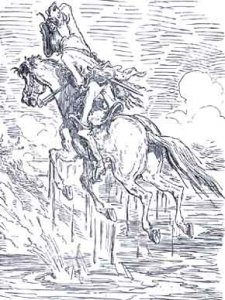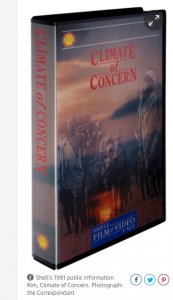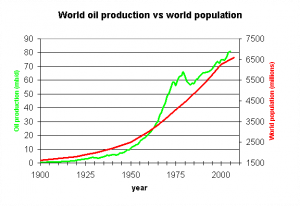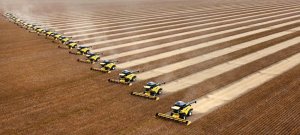For den som er usedvanlig glad i å lese veldig godt resonnert materiale omkring emnet så har Benjamin Kunkel nylig anmeldt tre relevante bøker. Jeg har tidligere nevnt Jason W. Moore og linket til hans tanker omkring "The End of Cheap Nature". Moore er nå kommet med en bok om emnet.
Kunkels anmeldelse er typisk grundig for London Review of Books og gir et fullstendig overblikk over utfordringene vi mennesker har stilt oss overfor nå. Kunkels anmeldelse anbefales tungt, selv om den var på tolv sider da jeg printet den ut hjemme. Kom i forrige uke:
https://www.lrb.co.uk/v39/n05/benjamin-kunkel/the-capitalocene
Et lite utdrag:
Altogether, according to the logic of Cheap Nature, ‘more and more extra-human nature attaches to every quantum of socially necessary labour-time,’ while the cost of securing this increasing biophysical throughput decreases as a proportion of capital’s total outlays. Capitalism’s ecological project, in other words, is to enlarge the quotient of ‘unpaid nature’, like that of unpaid labour, in the total value of saleable commodities. (It may sound strange to speak of unpaid nature when nature accepts no cash, but workers must be paid to deliver many of its so-called free goods, and rent is usually paid for access to resource-rich land.) The insight that commodity production will cost least where both work and materials cost least may appear obvious. But it’s not too obvious to have escaped most writers on Marx’s value theory, who typically concentrate on machines and other infrastructure (‘fixed capital’) in the means of production to the neglect of energy and raw materials (‘circulating capital’). As Moore points out, ‘circulating capital is the forgotten moment in Marx’s model.’ Later adherents of the labour theory of value perhaps felt abashed to admit the full import of non-human energy and raw materials, when these are obviously not products of human labour. But as Marx himself insisted, ‘labour is not the source of all wealth.
Nature is just as much the source of use values … as labour, which itself is only the manifestation of a force of nature.’
Can capitalism come by Cheap Nature indefinitely? Moore identifies a counter-tendency, which he calls ‘the tendency of the ecological surplus to fall’. The ecological surplus refers to the contribution that the flood of non-human ‘work/energy’ into the economy makes to capital accumulation over and above the monetary cost of procuring it. The ecological surplus will fall whenever capital can’t maintain or boost the quotient of ‘unpaid nature’ in the sum of commodity values.
Moore lays out four reasons why this might – and, finally, must – take place across the system. First, the law of entropy stipulates that using compact and versatile energy-dense materials (say, precious metals or fossil fuels) yields less serviceable and energy-dense materials (cans in the recycling bin) if not outright waste (discarded batteries) and pollution (power plant emissions). Over the long run, transforming useful resources into useless waste rules out economic growth. (Moore denies that entropy ultimately threatens civilisation tout court, as opposed to ‘specific civilisational logics’, but he doesn’t say why, and how could he? One suspects a concession to the anti-Malthusian etiquette of socialists, according to which no ultimate limits to growth should be conceded lest final scarcity justify interim poverty. But the Second Law of Thermodynamics doomed civilisation on earth to a mortal career from the start; the only question – as with a human life – is how brief and blundering the career proves.)
A second and more immediate risk is that the capitalisation or money-cost of the Four Cheaps rises faster than their contribution to labour productivity, as might happen should increased demand for unfinished commodities like wood, copper or wheat – or co-operation among the countries that export them – drive up prices. A third hazard is that natural resources may, for technical reasons, become harder rather than easier to come by; after plucking the lowest-hanging fruit, capital will need to make and climb a ladder, as it were, to gather the remainder. (Petroleum production furnishes perhaps the most important example of declining ‘energy returned on energy invested’: a century ago, it took far less effort to extract a barrel of oil from the great Texas oilfields than it does now to get, through fracking, another barrel from what the first procedure left behind.)
Moore’s fourth and last barrier to a perpetually increasing ecological surplus – and ‘arguably the most cumulatively significant’ – is degradation of the biosphere through carbon emissions, soil degradation, biodiversity loss, chemical toxicity and so on. A sufficiently tattered web of life will yield ‘negative value’ rather than any positive plenty: no application of capital or labour, in any amount, will be able to produce anything but goods of generally inferior quality and quantity. Capitalism would then have finally destroyed the natural preconditions for continually rising labour productivity and endless capital accumulation, never mind the welfare of noncapitalist humans and other bystander organisms.








